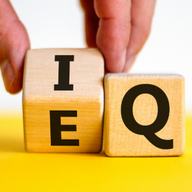Are you a Mindful or Mindfull leader?

Learning & Development
148 week ago — 6 min read
A recent study revealed that when leaders are stressed, their anxiety can be felt across the entire organisation, often to the point where good employees will walk away from a job to save their own health. Only 7 percent of employees surveyed believe that their stressed leaders effectively lead their teams, and only 11 percent of employees with stressed leaders are highly engaged at work.
When you hear the word 'mindfulness', what comes to mind? What is it really? And how can you apply it in your leadership role? In this article, let’s explore what mindfulness is, how to practice it, and how it can improve your leadership abilities.
Jon Kabat-Zinn an American professor emeritus of medicine and the creator of the Mindfulness Based Stress Reduction (MBSR) at the University of Massachusetts Medical School defined mindfulness as "the awareness that arises from paying attention, on purpose, in the present moment and non-judgmentally”. By focusing on the breath, the idea is to cultivate attention on the body and mind as it is the moment to moment, and so help with pain, both physical and emotional.
A recent study found that mindful leadership can positively impact the workplace. On average, 1/3 of our waking hours are spent at work, while it is true that the workplace is not all about productivity and efficiency, as well as positive effects on their mental health.
Mindful leaders are those who understand their own emotions and the emotions of others around them. They are better equipped to handle challenges, manage change, and improve productivity in the workplace.
Mindful leadership involves a focus of awareness of the present moment and helps to minimize distractions from negative feelings. When you get to be mindful of everything that goes on within and around you, you will notice a difference in how productive and efficient you are as a leader.
Mindful leaders are those who understand their own emotions and the emotions of others around them. They are better equipped to handle challenges, manage change, and improve productivity in the workplace.
The benefits of mindful leadership are immense and maybe a new perspective for companies who are looking at how they can improve their leadership skills.
Mindful leadership is a concept that was introduced in the 1940s by William W. George, a Harvard University professor. “He coined it as an antidote to negative leadership behavior. The idea of mindful leadership suggests that higher levels of awareness and focus, on the task at hand, leads to better results.”
Harvard Business Review research identified 3 specific areas of mastery that allow leaders to be more present, more thoughtful in their organizational choices, and more aware of everything going on around them.
The three areas are:
- Metacognition: This is the ability to take a step back to observe at a distance what is happening around you. By doing so, you become more aware of your own reactions to situations. "Without metacognition, there is no means of escaping our automatic pilot," says HBR researchers Megan Reitz and Michael Chaskalson.
- Allowing: This refers to being open to what is happening without judgment or yourself or anyone else. "Without allowing, our criticism of ourselves and others crushes our ability to observe what is really happening," observes Reitz and Chaskalson.
- Curiosity: Curiosity is defined as seeking new information and experiences perhaps the most important attitude for leaders. It allows leaders to embrace uncertainty, appreciates different perspectives, and explore different ideas and opportunities.
If you want to start practicing mindfulness right away, try these simple exercises:
- Listen to the sounds in your surroundings for 10 seconds.
- Take a deep breath and notice your shoulders feeling more relaxed as you exhale 3 times.
- Write down something you are grateful for on a piece of paper.
- Notice one new thing about a person you are talking to.
- Pause and say 5, 4, 3, 2, and 1. Take a deep breath and respond.
If you want to lead with mindful awareness, you can make it a habit by practicing every day. Mindfulness is a skill that can be built and developed through conscious practice. The more time you practice mindfulness, the better you will become in your role as a leader.
Also read: Harness the power of mindfulness to eliminate stress at work
If you are looking to learn more about mindful leadership, link with me by clicking on the 'Connect' button on my eBiz Card.
Image source: Canva
Disclaimer: The views and opinions expressed in this article are those of the author and do not necessarily reflect the views, official policy, or position of GlobalLinker.
View RadicalEdge 's profile
SME Inspirations
Other articles written by RadicalEdge Consultants
Most read this week
Trending













Comments
Please login or Register to join the discussion